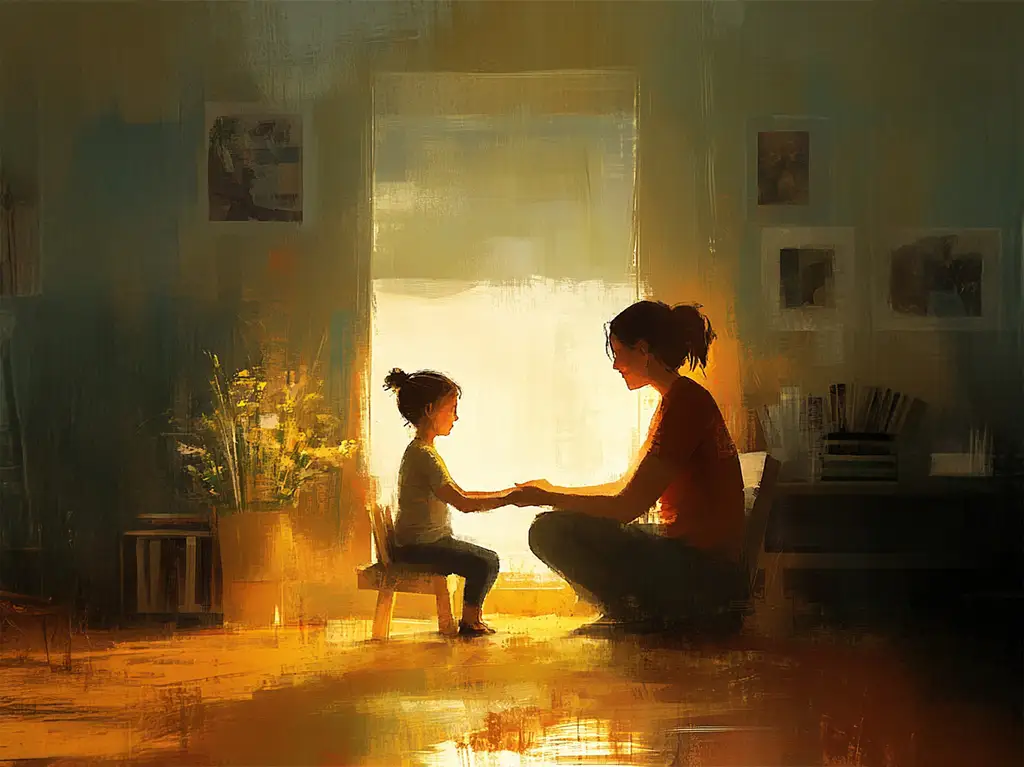As a parent, the journey of facing cancer is undoubtedly overwhelming, but explaining cancer to your children can seem like an even greater challenge. An important question comes up: how to tell a child you have cancer? Children are intuitive and can sense when something is wrong. It’s important to have a conversation that is open, honest, and suitable for their age.
Providing emotional support for kids with cancer and offering comfort are key elements of this discussion. Here’s a guide to help you talk to kids about cancer and how to provide the support they need.
Prepare Yourself First
Before talking to your kids about cancer, take a moment to process your own emotions and thoughts. You need to be clear about what you want to say and how you want to say it. Consider your children’s ages, personalities, and emotional development.
Children thrive on trust and openness, so it’s important to be as truthful as possible, while still tailoring your words to their level of understanding. Supporting children during cancer involves being both a source of information and comfort.
Choose the Right Time and Place
Timing is everything. Choose a quiet, familiar space that you can use without interruptions. Ensure that your children feel safe and comfortable, as this will help them process what you are about to say. The answer to how to comfort a child about cancer is ensuring they feel secure in their surroundings.
Use Simple, Clear Language
Children may not understand medical terms, so simplify your explanation. Use the word “cancer” but break it down in a way they can understand. For instance, “Mommy has an illness called cancer. It means that some cells in my body aren’t doing what they’re supposed to, but I’m going to get medicine that will help me feel better.”
The way children perceive and cope with illness changes as they grow. Younger kids may need simpler explanations while older children and teens may need more detailed information and an opportunity to talk about their fears. Honest communication about cancer helps build trust and reduces confusion for children.
Be Honest, But Hopeful
Children appreciate honesty. If they sense you’re holding back, they may fill in the gaps with their own worst fears. Explain what cancer is and what the treatment will be like, but also emphasize that you’re getting the care you need. For example, “The doctors are giving me medicine to help me get better, but it might make me feel tired, and my hair might fall out.”
Providing emotional support for kids with cancer also means balancing honesty with hope, helping them understand while reassuring them.
Encourage Questions and Expressing Emotions
Children may have many questions or may need time to process the information. Let them know that it’s okay to feel sad, confused, or even angry.
Open the door for communication by saying, “I wonder what you’re thinking right now” or “Do you have any questions?” You might not have all the answers, and that’s okay too. Be honest when you don’t know something and reassure them, you’ll figure things out together.
Provide Updates and Be Ready for Follow-Up Conversations
As your treatment progresses, keep your children informed. Use age-appropriate language to explain what’s happening. For example, “I’m going to the hospital for some treatments, and when I come back, I might be a bit more tired than usual.” Be ready to answer new questions as they arise and let them know it’s okay to talk about how they’re feeling at any time.
Don’t Be Afraid to Seek Help
You don’t have to go through this alone. Counselors, social workers, and child specialists are available to guide you through this process. If you feel unsure about how to handle certain aspects of the conversation, don’t hesitate to ask for help from a professional. Organizations like Massive Bio can help you explore different options and connect you with clinical trials that offer innovative solutions, providing hope not just for you, but for your family as well.
Emphasize Hope and Love
While it’s important to be realistic, leaving room for hope and maintaining emotional closeness is essential. Assure your children that you are doing everything you can to get better and that you will always be there for them, no matter what happens.
Communicating with your children about your cancer diagnosis will not be easy, but honesty and openness will help them feel secure and supported. Supporting children during cancer involves not only providing emotional support but also fostering a comforting environment where they can process their feelings. By providing age-appropriate information, reassuring them of their own safety, and keeping the lines of communication open, you can help them navigate this difficult time with love and understanding.
